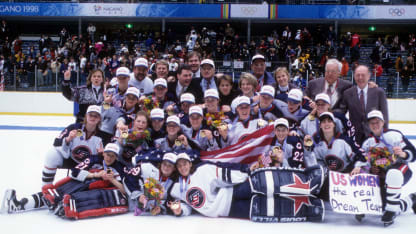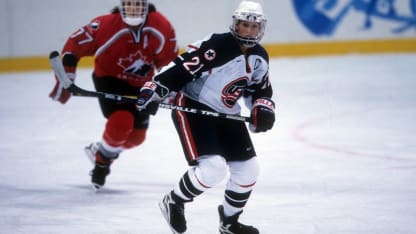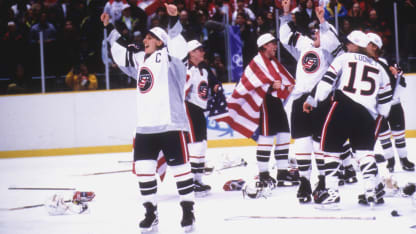For Knight it was the moment when, at Granato's camp, she realized she had broken all the wooden sticks she came with. Granato handed over her own.
"She probably doesn't even remember because it's so insignificant," Knight said. "But to me as a kid, to be able to even touch her stick was like, 'Oh my goodness.' "
These were the women who would carry USA Hockey forward, who would take the reins. The women who would go on to make inroads into the NHL, with Coyne Schofield serving as a player development coach and youth hockey growth specialist for the Chicago Blackhawks, with Duggan as the director of player development for the New Jersey Devils.
When Duggan first decided to pursue a career in the NHL, one of her first calls was to Granato.
For her, that gold back in 1998, when she was 10 years old, was "life-altering." She spoke with reverence of getting to meet Ulian, of putting her medal on and donning her jersey.
"It changed my life," Duggan said. "Like when I think back to when I set my eyes on playing for Team USA and going to the Olympics, it was that moment. I left that night and I told every person in town that was going to be me. I was going to go to the Olympics and I was going to captain Team USA to a gold medal and then I built my life around that dream."
It's hard to imagine what would have happened to women's hockey in the United States had that 1998 team not won gold. It was a question that stumped Knight and Mleczko and Katie King Crowley, a forward on that team who is now in her 16th year as coach of the Boston College women's hockey team, as they contemplated everything from a gold in 2002 to a scenario in which frustration and lack of results led USA Hockey to pull back on funding for women.
"I don't know," Knight said. "I don't know if we would have had the same growth of youth programs on the side. It's a really interesting question to think about because that win enabled more youth programs to provide a voice and say, hey, we want more specific girls' hockey teams and we want to allocate more ice to girls and women that play hockey, which wasn't a thing before."
In the summer of 2021, Granato was back at a hockey camp. She looked out over the crowd and she saw, there, how much was different; from when she was growing up, from those initial camps after the 1998 gold medal, from all the years after.
"That's actually when it hit me because I was back in Illinois," Granato said. "That entire lobby was girls, walking around with their team logos. They were walking with swagger and confidence. And the whole lobby is filled with women and young girls. I was like, this is awesome."
There it was, the proof of what they had done, the proof of where it had gone.
"That win just put women's hockey on the map," Knight said. "And, granted, it was the first time it was in the Olympics, so that was monumental as is. But if they didn't win, I don't know where the sport would be.
"So we have all of those women to thank. Little did they know, they had the entire sport on their back in the United States. They were probably just showing up to win a hockey game."




















